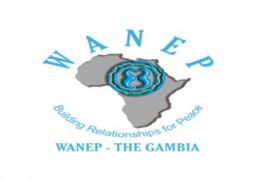
Several of them were concerned with and one thing they all held in uniformity is that the business has been inactive, almost at a standstill, and is becoming worst day by day. According to them, this has harshly affected their families, since they do not have enough income to be able to provide the basic needs necessary for survival.
“This is what we sell. We do not have to sit at home. The tourists used to come here and this had made it better. We are not selling anything. It is very tight here. Sometimes we do not even have what to eat. Our oysters are there and no one has asked yet since morning. I do not know what to do if it does not sell before Monday, because my children would be going to school. We find it hard to provide them with their needs to be able to go to school. They said free education but we must buy books and other materials. There is also no scholarship,” Anna Jatta, oyster monger, said.
“Sometimes I just want to shout, but what for? What would it do to ease the problem? Nothing. We must pay our children’s education, but some of them have graduated and have no jobs. So, they still depend on us for their needs and survival, but the oyster business is not going well as before the coronavirus pandemic,” she added.
Anna Manga, another oyster harvester and monger lamented that: “The business has changed. The way it used to go and now are very different. How this business is going is very hard to bear, and it is where we obtain our fish money, breakfast, dinner, what to give to our school-going children and take care of our other needs. At first, people who came from Europe do come here and buy in large amounts to take along while going back.”
A veteran in the business, Maimuna Jatta, reiterated how tight the business has been. She said sometimes they sell nothing from dawn to dusk, but even with that situation they cannot sit at home. Despite the odds, she believes that they stilldesire to come, whatever lucky come their way, they share it with their children and pay for school dues. Her emotional conclusion was they must survive.
However, they have all in unison accused some Non-Governmental Organisations and government officials of deep-rooted corruption and misappropriation of funds at times given by the government or by international organizations meant for them. They revealed that officials have been coming to their workplaces at Sarro, asking them about their plights, taking photos of them and promising to come back to give them a share of money disbursed for them, but those promises have never been fulfilled.
Maimuna Jatta said she has been waiting for those promises to be fulfilled, but nothing has been given to her. Anna Manga, Anna Jatta and about 7 others also expressed the same sentiments.
According to them, the act has been happening for decades. They held that many of what is being advertised or shown daily on TV stations, which supposed that they are being assisted all are not accurate.
“What is on the ground and what is being aired are different stories. Even the support rarely rendered to us is always absolutely inadequate,” they also said.
What has been discovered is that the standard of living of families engaged in oyster business or the families of those engaged in oyster business has severely been reduced to about 60% compared to the way they lived before the Covid-19 crises. Another important issue found out was that there is deep-rooted corruption by officials from departments of the public and private sector usually assigned to handle the welfare of oyster farmers. Furthermore, it is likely that there would be more children from the families of oyster farmers, especially the single parented, dropping out of school, as the problems posed by the corona virus pandemic continue.
However, they expressed a steadfast need for help and support. They urged a deep need for working materials and facilities such as canoe for harvest, fridges for preservation, and a store for their products and materials, which are often stolen. They did not forget to mention relief packages in terms of food aid, which could alleviate the still heartbreaking impact of the Covid-19 pandemic on them and their immediate families.
This story was produced with support from Journalists for Human Rights (JHR), through its Mobilising Media in the Fight Against COVID-19 in partnership with Mai-Media and The Point.





